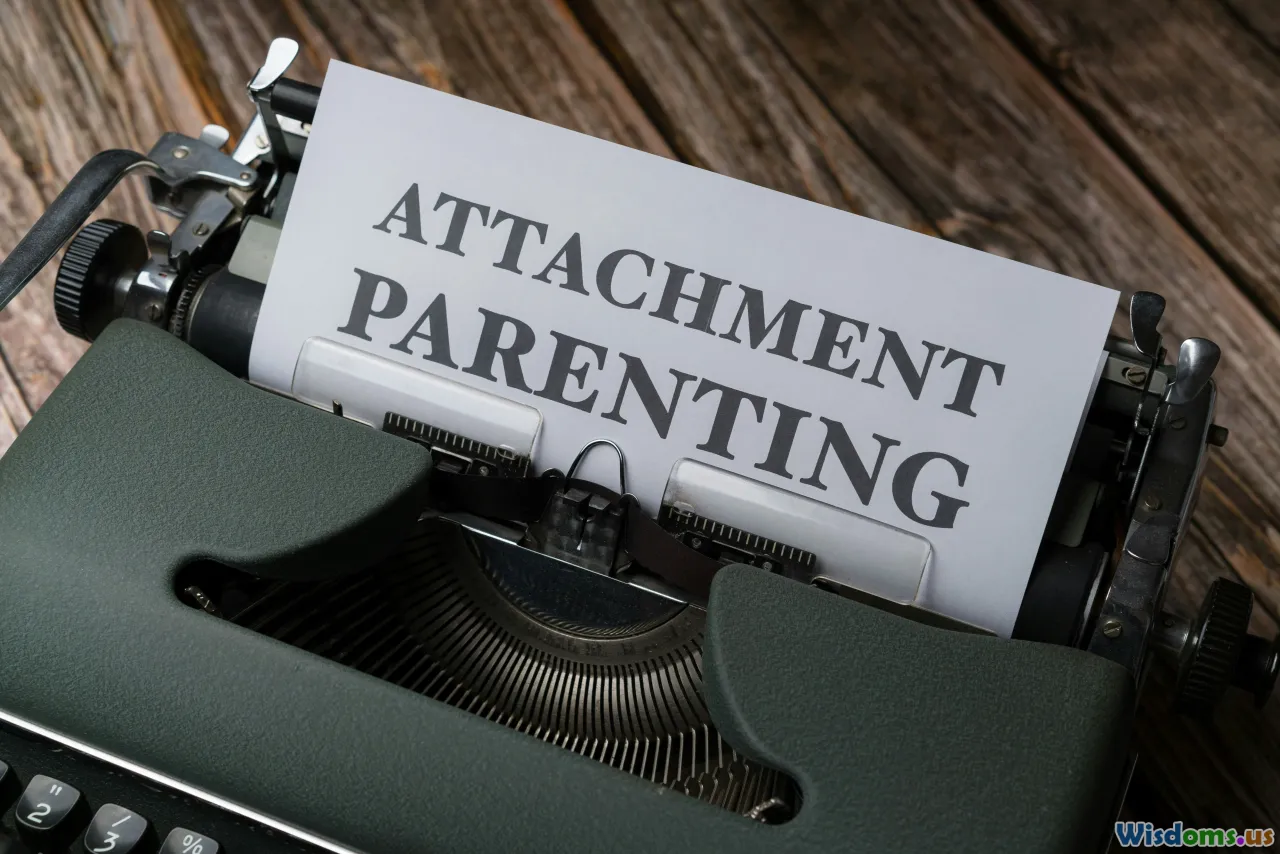
Family Law Changes That Will Impact You in 2025
15 min read Discover the upcoming family law changes in 2025 and how they may affect custody, support, and parental rights. (0 Reviews)
Family Law Changes That Will Impact You in 2025
Legal reforms frequently aim to reflect the evolving needs of society, but few areas feel the effects more personally than family law. In 2025, sweeping legislative updates are set to influence how families handle divorce, child custody, financial matters, and domestic safety. Whether you're currently experiencing a family law matter or simply planning ahead, understanding these changes could be crucial for safeguarding your relationships, rights, and well-being.
Modernizing Divorce Procedures

For decades, divorce has often been entangled in complex paperwork, lengthy court proceedings, and heightened emotional stress. In 2025, several jurisdictions—including many U.S. states and parts of Western Europe—are introducing major revisions designed to modernize and streamline the process.
Key Updates:
- Digital Filing and Hearings: Courts are shifting toward electronic document submission and virtual proceedings. For example, California will debut its completely digital divorce portal, permitting all parties to file, communicate, and attend initial hearings online.
- Mandatory Pre-Divorce Counseling: In some regions (e.g., the UK and Australia), couples will need to undergo state-mandated educational sessions about divorce alternatives and co-parenting, aiming to reduce court backlogs and post-divorce conflict. Each party receives a completion certificate to proceed.
- Quicker Timelines for Uncontested Divorces: Where both parties agree on asset division and custody, new rules require resolutions within 60 days—down from the previous 6–12 months.
Example in Practice: Suppose you and your spouse agree amicably to divorce in New York. From 2025, rather than booking months-out court dates, you complete all paperwork virtually and schedule a brief video call, saving significant time, travel, and stress. An added bonus: lower legal fees.
Revisions in Child Custody and Parental Rights

Child custody law has traditionally focused on parental fitness, often favoring mothers for primary physical custody. However, 2025 brings nuanced revisions reflecting research on child well-being and societal shifts.
Key Updates:
- Presumption of Joint Physical Custody: Many states—such as Texas and Illinois—will make joint custody the starting point for decisions unless clear evidence shows it's not in the child’s best interest.
- Voice of the Child: Children over 10 will gain a formal voice, testifying via child specialists or video sessions to share their lived experience and preferences.
- Updated Relocation Standards: If a parent wishes to relocate, courts must now balance the child’s community ties (schools, extended family) with the moving parent's needs, using a transparent ‘best interests of the child’ matrix.
Insightful Tip:
Parents anticipating a separation in 2025 should consider proactively exploring co-parenting communication platforms such as OurFamilyWizard or TalkingParents. Some courts will begin accepting these app-based records as evidence of parental cooperation or lack thereof.
Enhanced Protection Against Domestic Violence

The fresh wave of family law reforms tackles the shortcomings in addressing domestic violence, expanding both the scope of protection and the speed of judicial response.
Key Reforms:
- Immediate Digital Restraining Orders: Survivors will, in many states, be able to apply and receive emergency protection orders through secure smartphone apps, available 24/7, eliminating the need to physically appear in court.
- Expanded Definition of Abuse: The law is catching up with realities: coercive control, financial abuse, and digital stalking are now covered under protective statutes, enhancing safeguards for modern forms of harm.
- Mandatory Judicial Training: Family court judges and law enforcement officers will undergo regular training on trauma-informed approaches, preventing re-victimization.
Real-World Example:
Maria, in a rural county with limited access to legal help, experiences coercive control from her partner. As of 2025, she can instantly file for a protective order via an encrypted app, receive confirmation within hours, and connect with remote legal guidance. Her situation cannot be dismissed as "non-physical," ensuring greater safety.
New Approaches to Spousal Support and Asset Division

Financial disputes remain some of the most stressful aspects of divorce. The 2025 updates target more equitable, transparent resolutions, particularly around spousal support (alimony) and asset division.
Key Changes:
- Standardized Spousal Support Formulas: Instead of leaving spousal support to wide judicial discretion, more states and countries (including Canada and parts of Germany) are introducing income-based formulas published online. Predictable outcomes reduce both cost and conflict.
- Mandatory Asset Disclosures: Parties must provide comprehensive digital disclosures early in proceedings, including retirement accounts, cryptocurrencies, and international assets. Non-disclosure will bring financial penalties.
- Recognition of Non-Financial Contributions: Courts will explicitly value homemaking, childrearing, and other non-paid marital roles with points-based valuation during asset division, a move hailed by gender equity advocates.
Comparison:
If two families with similar assets divorce in different states—one with judicial discretion, the other with a formula—the formula-based case often resolves faster, with fewer appeals and disputes.
Progressive Laws for Non-Traditional Families

Reflecting society's diversity, 2025's legislations explicitly recognize non-traditional and LGBTQ+ family structures.
Legislative Innovations:
- Parentage Equality for LGBTQ+ Parents: States like Massachusetts and countries such as the Netherlands will automatically recognize parental rights for both spouses in same-sex marriages at the child’s birth, without requiring step-parent adoption paperwork.
- Multi-Parent Families: In progressive regions, laws allow for three or more legal parents if it’s in the child’s best interest (e.g., biological parents and a committed step-parent). This affects decision-making, inheritance, and parental responsibilities.
- Broader Adoption Rights: Barriers to gay, single, or non-married adults adopting children are being dismantled, aligning child welfare with modern realities.
How-to Guide:
If you’re an LGBTQ+ family planning for parenthood, consult with a specialist attorney. Ask about new declaration-of-parentage forms available for hospitals and incorporate these in your birth planning. This ensures your legal relationship with your child is established from day one.
Streamlined International Family Law Provisions

Globalization and mobile lifestyles create complex legal dilemmas—especially for families crossing borders or with multinational members. 2025’s reforms seek smoother, more consistent resolutions.
Specific Developments:
- Faster Enforcement of Foreign Family Court Orders: With broader adoption of the Hague Convention protocols, child support and custody orders issued in one country are more swiftly enforceable overseas. The European Union, for example, is adding a 30-day response rule for member state courts.
- Unified Online Filings: Expats in Canada, the UK, and Australia will be able to file for child support, visitation enforcement, or divorce without physically returning to their country of marriage or the child’s birth.
- Protection Against "Parental Abduction": Laws will close technical loopholes that previously allowed a parent to relocate a child overseas before the court’s determination. Real-time alerts are being instituted between justice departments in the U.S. and EU.
Actionable Advice:
If you have an international element in your family (dual citizenship kids, frequent international moves), register your parenting agreements or custody order with local embassies now, streamlining any disputes that could arise under future rules.
Expanded Access to Legal Aid and Alternative Dispute Resolution

One of 2025's most significant goals is to make justice accessible. The latest family law statutes recognize the uneven playing field caused by legal costs and court delays.
Highlights:
- Universal Family Legal Aid: In several jurisdictions, income-tested family legal aid is extended to more households, including single parents and recent immigrants.
- Mediation-First Policies: Some states and regions will, barring cases of abuse, require that all family law disputes begin with a mediation or collaborative law session. If you resolve before trial, you pay reduced court fees and legal costs.
- AI-Assisted Dispute Resolution: Online platforms leveraging artificial intelligence can propose settlements based on legal norms and the user's unique circumstances, allowing many families to resolve child support or visitation matters without in-person court time.
Example:
David and Anjali cannot afford extended legal representation. With the rollout of universal legal aid and new mediation-first policies, they can access a certified mediator and AI-powered negotiation platform from home, minimizing costs and resolving issues with less acrimony.
Planning for the 2025 Changes: Practical Steps for Families

While legal changes are driven by policymakers, families can act strategically to prepare for and take advantage of the new landscape.
Smart Steps to Take Now:
- Update Your Legal Documents: Review prenuptial, postnuptial, and cohabitation agreements with counsel to ensure compliance with anticipated 2025 rules—especially regarding asset disclosures and non-financial contributions.
- Digitize Essential Records: Scan and secure digital copies of key documents such as marriage or birth certificates, important correspondence, and financial statements. Organize them in an online vault or reputable legal platform.
- Consult with a Family Lawyer About Reforms: Proactive consultations—even for those not planning to separate—often reveal strategic opportunities for estate planning, parental responsibility arrangements, or cohabitation agreements.
- Educate Teens and Older Children: For those subject to the new "voice of the child" rules, consider community workshops or family discussions to help them understand their rights and express their wishes in a healthy way.
- Use Technology to Stay Informed: Sign up for alerts or newsletters from reputable sources such as your local bar association or a trusted family law agency, to remain on top of rolling updates and court procedures.
Example:
Jenny and her partner, contemplating a future blended family with previous-marriage children, meet a family law specialist twice in 2024 to map out a co-parenting structure aligned with the forthcoming multi-parent provisions—solidifying their roles before birth of a new child.
\
The wave of changes coming to family law in 2025 may seem daunting—but they're designed to reflect modern realities and promote stability, safety, and fairness. By staying informed and proactive, families can navigate new rules with confidence, knowing the legal system is gradually aligning with the ways real families live today.
Rate the Post
User Reviews
Other posts in Family & Social Relations
Popular Posts















